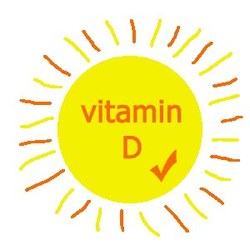We all need the Vitamin D
Doctors stress the importance of adequate Vitamin D intake

01/2017
Vitamin D is essential for a healthy, balanced body. It plays a big role in cardiovascular health, reduces inflammation in various autoimmune conditions, increase bone health and can even help guard against some cancers.
Dr. Melody Eide, a skilled dermatologist with the Medical Center of Spearfish shares that Vitamin D is not actually a vitamin but a fat-soluble, steroid hormone which is obtained from dietary sources, vitamin supplements and sun exposure. Many people may be at highest risk of low intake including breast-fed infants, the elderly, individuals with very limited sun exposure, and those with darker skin such as African Americans. People with malabsorption syndromes or those who use certain medications, such as certain anti-seizure medications or glucocorticoids are also at risk. Anti-seizure medications or glucocorticoids can increase the metabolism of Vitamin D.
When an individual is Vitamin D deficient, they may experience bone pain and softness or even bone loss, as well as muscle weakness, kidney disease, lung disorders, diabetes, stomach and intestine problems, and heart disease.
For those who reside in a northern area with limited sun exposure and those that spend a large amount of their time indoors the vitamin can be obtained through other sources. The easiest method for absorbing Vitamin D is through diet, as there are actually several foods which naturally contain adequate levels of Vitamin D3, ie. cod liver or fatty fish oils such as sword fish, salmon, or tuna, Vitamin D fortified dairy products, and orange juice. Another excellent option is to take Vitamin D supplements. In their 2010 report, the Institute of Medicine recommended that individuals between the ages of one and seventy with minimal sun exposure should take Vitamin D supplements.
http://www.bhpioneer.com/inside_scoop/we-all-need-the-vitamin-d/article_8966fda6-e7dc-11e6-af88-8b5f589d87fa.html
Vitamin D is essential for a healthy, balanced body. It plays a big role in cardiovascular health, reduces inflammation in various autoimmune conditions, increase bone health and can even help guard against some cancers.
Dr. Melody Eide, a skilled dermatologist with the Medical Center of Spearfish shares that Vitamin D is not actually a vitamin but a fat-soluble, steroid hormone which is obtained from dietary sources, vitamin supplements and sun exposure. Many people may be at highest risk of low intake including breast-fed infants, the elderly, individuals with very limited sun exposure, and those with darker skin such as African Americans. People with malabsorption syndromes or those who use certain medications, such as certain anti-seizure medications or glucocorticoids are also at risk. Anti-seizure medications or glucocorticoids can increase the metabolism of Vitamin D.
When an individual is Vitamin D deficient, they may experience bone pain and softness or even bone loss, as well as muscle weakness, kidney disease, lung disorders, diabetes, stomach and intestine problems, and heart disease.
For those who reside in a northern area with limited sun exposure and those that spend a large amount of their time indoors the vitamin can be obtained through other sources. The easiest method for absorbing Vitamin D is through diet, as there are actually several foods which naturally contain adequate levels of Vitamin D3, ie. cod liver or fatty fish oils such as sword fish, salmon, or tuna, Vitamin D fortified dairy products, and orange juice. Another excellent option is to take Vitamin D supplements. In their 2010 report, the Institute of Medicine recommended that individuals between the ages of one and seventy with minimal sun exposure should take Vitamin D supplements.
http://www.bhpioneer.com/inside_scoop/we-all-need-the-vitamin-d/article_8966fda6-e7dc-11e6-af88-8b5f589d87fa.html
